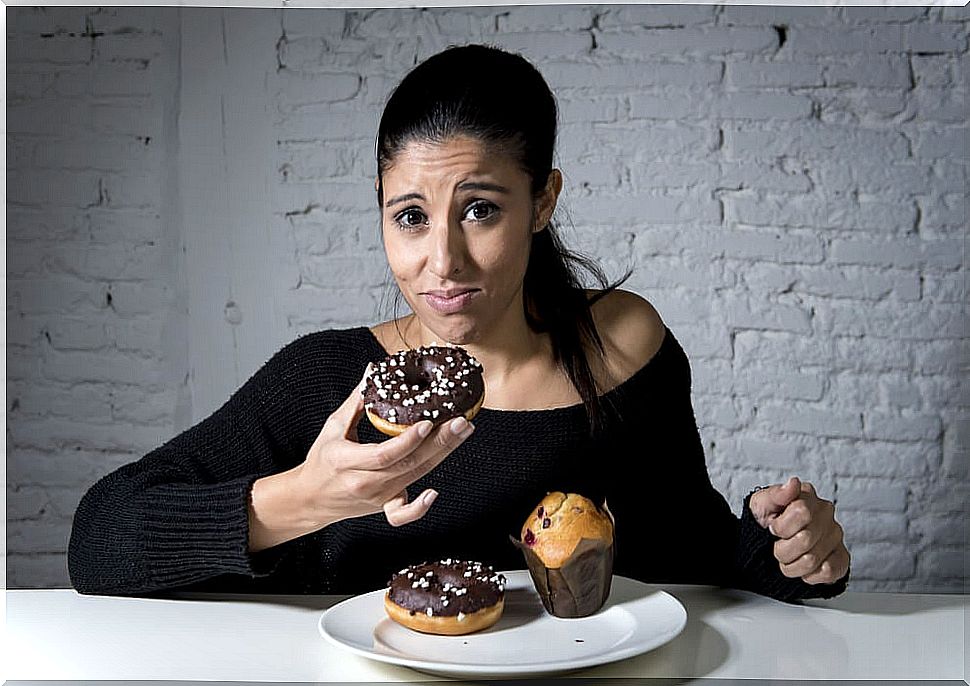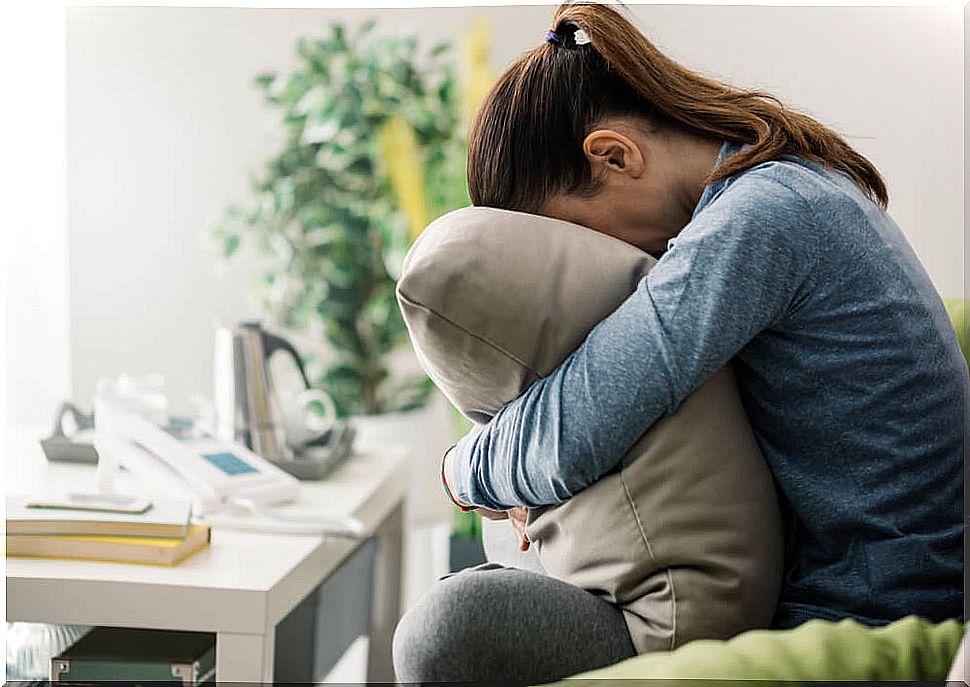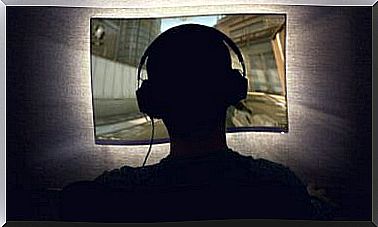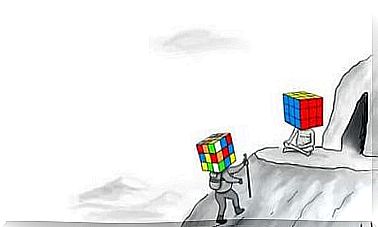How To Deal With The Feeling Of Guilt?

we experience all kinds of positive sensations. On the other hand, negative Guilt
destructive Guilt can have very deep roots, perhaps having been triggered in our early childhood and accompanying us throughout our life cycle into adulthood.
If we think about it, many of the phrases that we receive in the first years of life were mainly intended to control our behavior by projecting a feeling of guilt : “what you just did is very wrong, you should be ashamed of it . ” These are situations that, without a doubt, can be more or less familiar to all of us.
The feeling of guilt his maiden guilt are very common dimensions among human beings. Therefore, it is necessary to remember that in life we can adopt two types of roles: that of the person who drags a feeling of guilt throughout his life (and the consequent victimhood) or free ourselves from those yokes, repair possible errors and avoid states chronicles of unhealthy anguish and resentment.

1. Anatomy of guilt: understand what it is and how it works
Guilt is primarily an emotion. Fischer, Shaver and Carnochan, (1990) define this state as that type of negative states where sadness, pain, bitterness and anguish are also integrated. They are not very comfortable internal dynamics and that in the long run can even lead us to states of clear defenselessness.
Likewise, it is interesting to know that this dimension has extensive clinical and scientific documentation. In fact, in a study carried out at Vanderbilt University, in the United States, it was shown that after depression, anxiety, obsessive compulsive disorder (OCD) and even eating disorders, it inhabits a large part of the occasions a feeling of guilt.
This emotion that arises after a behavior, a situation for which we believe we are responsible or even as a result of those projections that our parents could direct on us in the past, impacts on oneself in different ways:
- Physical influences: the psychophysiological activation of the feeling of guilt manifests itself with pain in the chest, stomach, pressure in the head and discomfort in the back.
- Emotional influences: irritability, nervousness, and we often identify it as something similar to sadness.
- Mental processes: self-reproaches, self-accusations and destructive thoughts of self-esteem and self-worth.
2. To cope with guilt, accept its existence but do not intensify it.
Many actions that we take help increase the feeling of guilt. Without even realizing it and frequently, we can generate a discomfort that is as useless as it is unnecessary. Nobody is supposed to like being their own executioner, however in most cases we end up being it. These mental actions are the ones that can feed our feelings of guilt the most.
Let us therefore see what the mechanisms that feed guilt are like and how they act.
Beware of polarized thinking
One of these actions is extreme polarized thinking. Within this vision, everything before us is either black or white, but on rare occasions we can see that there are nuances and a wide range of possibilities and circumstances. Thinking that things are good or bad, positive or negative, drastically reduces our vision and leaves us little room to maneuver. It is a form of rigidity typical of perfectionism, with a strict system of rules.
Don’t shy away from the emotion of guilt, understand it
Another is the way of coping. Coping with the feeling of guilt does not lie in stopping feeling this emotion, in eradicating it or avoiding it. That it appears is inevitable and it will appear frequently in our lives, and of course it will hurt. The meaning is in letting it feel and then considering, reflecting, why it has appeared.

Your internal dialogue should not be your enemy
The last of the actions that help us increase the feeling of guilt is internal dialogue. We should be able to talk to ourselves without reproaching ourselves. When we experience the shadow of this emotion, the ideal is to ask ourselves: Why do I feel this way? What is the situation that has caused me to blame? Can I assume this guilt without making it bigger or underestimating myself for it?
3. Understand, mediate and heal guilt
Guilt is an emotion that acts as a warning. It is an alarm system from which we must not flee. The ideal therefore is to reflect on what has caused it, and understand why we feel that way. It is like learning to understand where we have to put the focus of attention in our lives to deal with vulnerabilities.
By doing this constructive analysis we avoid suffering and discomfort that have nothing to do with guilt, but rather with our devaluation and misunderstanding of ourselves. In this way we can provide a solution and understand that there are alternatives to face the situation in which we have felt guilty.
Guilt can be mediated, for example, by not having apologized to someone for our behavior. Other times, because we think that we have acted with little success, with little effort or in the wrong way. Therefore, understanding that there is often an error to repair allows us to deploy a mechanism of action and repair.

It is part of our responsibility to try to understand ourselves without falling into our own devaluation, punishing ourselves or disqualifying ourselves, unfairly thinking that we are bad or selfish and there is nothing to do about it. This leads us to a loop in which we waste time and self-destruct without solving anything, or taking the actions that lead to the external solution and that of our internal conflict.
Let’s learn to manage guilt in an effective, constructive and, above all, healing way.









